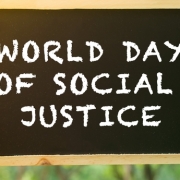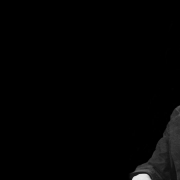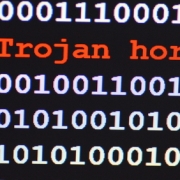If you believe that fairness and what philosophers call “desert,” or deserving the benefits and harms we receive, are the most important features of a society, you’ll spend a lot of time being upset.
My favorite statements of this problem are by F.A. Hayek and J.R.R. Tolkien.
From Hayek (The Mirage of Social Justice, pp. 68-69):
Are we not all constantly disquieted by watching how unjustly life treats different people and by seeing the deserving suffer and the unworthy prosper? And do we not all have a sense of fitness, and watch it with satisfaction, when we recognize a reward to be appropriate to effort or sacrifice? The first insight which should shake this certainty is that we experience the same feelings also with respect to differences in human fates for which clearly no human agency is responsible and which it would therefore clearly be absurd to call injustice. Yet we do cry out against the injustice when a succession of calamities befalls one family while another steadily prospers, when a meritorious effort is frustrated by some unforeseeable accident, and particularly if of many people whose endeavours seem equally great, some succeed brilliantly while others utterly fail….
Our complaints about the outcome of the market as unjust do not really assert that somebody has been unjust; and there is no answer to the question of who has been unjust. Society has simply become the new deity to which we complain and clamour for redress if it does not fulfill the expectations it has created. There is no individual and no cooperating group of people against which the sufferer would have a just complaint, and there are no conceivable rules of just individual conduct which would at the same time secure a functioning order and prevent such disappointments.
From Tolkien (The Fellowship of the Ring):
Frodo: What a pity that Bilbo did not stab [Gollum] when he had a chance!
Gandalf: Pity? It was Pity that stayed his hand. Pity, and Mercy: not to strike without need. And he has been well rewarded, Frodo. Be sure that he took so little hurt from the evil, and escaped in the end, because he began his ownership of the Ring so. With Pity.
Frodo: I am sorry. But I am frightened; and I do not feel any pity for Gollum.
Gandalf: You have not seen him.
Frodo: No, and I don’t want to. I can’t understand you. Do you mean to say that you, and the Elves, have let him live on after all those horrible deeds? Now at any rate he is as bad as an Orc, and just an enemy. He deserves death.
Gandalf: Deserves it! I daresay he does. Many that live deserve death. And some that die deserve life. Can you give it to them? Then do not be too eager to deal out death in judgement. For even the very wise cannot see all ends.
Late in the summer of 2018, in anticipation of hurricane season — the time when both the weather and the arguments about “price gouging” are hottest — I wrote a piece on problems with regulating price. In it, I made an analogy to a military siege. A siege, after all, is a tactic to take a fortified city by starving the population into surrender. A number of readers challenged me on this analogy. Here’s what I said:
Anti-price-gouging (APG) laws block [market-based] resupply, as effectively as an enemy army might lay siege to a city. A “siege,” after all, is when a military unit surrounds a city and prevents needed supplies from getting through. APG laws actually require state and local officials to lay siege to cities. That would be an act of war if another army did it, but when we do it to ourselves it’s just “public policy.”
One reader, in an email eerily similar to Frodo’s sentiment saying those who act badly deserve punishment, had this to say:
Munger, you are just a shill for thieves and pirates. What you are missing is that these price-gougers don’t deserve those high prices. There is an undeserved benefit to acting badly and raising price. That’s why people are willing to [give up access to goods they need], because they care about morality. (emphasis original)
What my reader meant was that people are willing to accept the consequences of APGs — empty store shelves — because the alternative is to give an undeserved benefit — profit — to people who act badly and raise prices in an emergency. I think that might be empirically right, but that doesn’t justify besieging U.S. cities with our own armies.
If you don’t want to reward “price gougers,” just don’t buy their stuff. But why would you feel justified in using force — in this case, literal force, with National Guard units surrounding cities such as New Orleans and blocking supplies from entering on the grounds that “you might sell those!”? There are accounts from across the ideological spectrum, from the Left to the Right, that claim there was a systematic effort to prevent supplies from being brought in after Katrina.
The best explanations I have heard all involve the attempt to control a “black market” in supplies and a desire — bolstered by the state government — to enforce the APGs. One of the clearest and most direct accounts, by Walter Block, raises the question of why there was a “black market” in the first place. After all, if some people need things, and other people are trying to bring those things in and deliver them, why is the government interfering?
I really think the answer is the siege mentality of prioritizing the restriction of “undeserved” profits. The focus on social justice, even ahead of helping the desperate, seems to be something very deep in the human psyche.
But our reason should be able to overcome this passionate delusion. The notion of “desert,” or deserving all of the benefits we enjoy or the harms we suffer, destroys opportunities for cooperation that would make literally everyone better off. The logic of the market system requires that we understand that desert is beyond our control.
The idea that we can achieve such outcomes in complex market systems is simply mistaken; the idea that we should pursue a desert-based patterned system of social justice borders on insane. It’s an empty and destructive distraction; as F.A. Hayek put it in The Fatal Conceit (p. 118): “The whole idea behind distributive justice — that each individual ought to receive what he morally deserves — is meaningless in the extended order of human cooperation.”
It would be better to let us help each other, even if sometimes someone manages to benefit.













